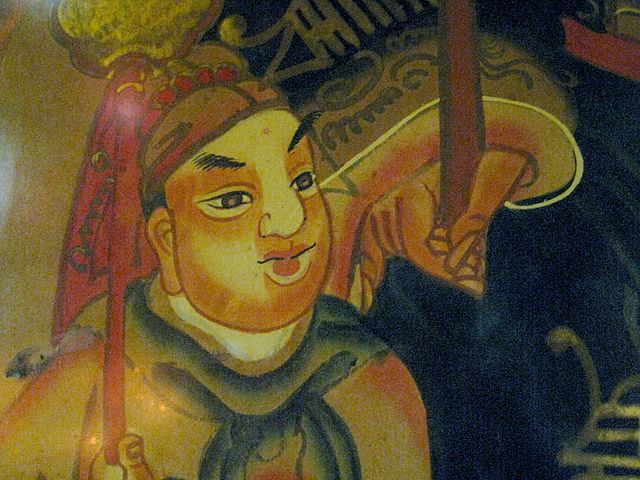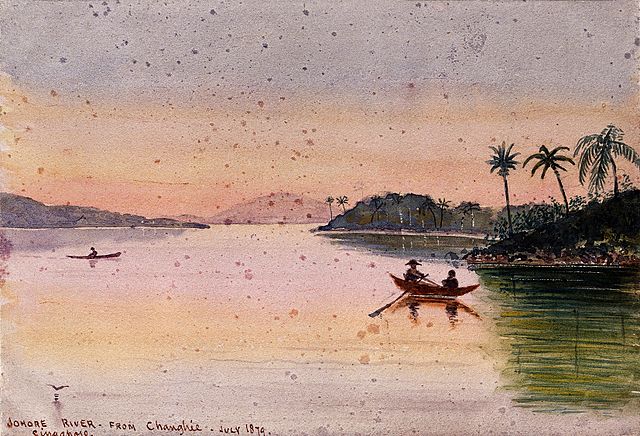
The Thammasat University Libraries have newly acquired a book about the liveliness of Malaysia’s cultural scene. Through the generosity of Professor Benedict Anderson and Ajarn Charnvit Kasetsiri, Generation: a Collection of Contemporary Malaysian Ideas is now shelved in the Charnvit Kasetsiri Room of the Pridi Banomyong Library. It contains essays by three Malaysian authors, Amir Muhammad, Kam Raslan, and Sheryll Stothard. Amir Muhammad (born 1972) is a Malaysian writer and independent filmmaker. Since age 14, he has published his writings, and at different times has written a newspaper column and written and directed films. In 2011, he founded the independent publisher Buku FIXI. The house publishes contemporary urban fiction in Malay and English as well as Malay translations of foreign titles, and graphic novels. It was founded after Amir Muhammad noted that Malay-language nominees for awards in fiction were all romance novels, and he wanted to offer a wider choice to readers. Buku FIXI specializes in pulp fiction, noir, horror, crime, and thriller stories. Among its different collections is Fixi Novo, urban contemporary Malaysian pulp fiction written by Malaysians in the American idiom. Among other fun-motivated projects was obtaining the rights to translate the back catalogue of DC Comics into the Malay language. With these and other achievements, Buku FIXI has become so popular that two years ago, a store opened to sell its titles. In The Star, a Malaysian newspaper, Amir Muhammad explained:
I always wanted to open a bookstore, even before I became a publisher! But I wanted to open a bookshop and a cinematheque and a coffee-shop, all in one. It was based on certain things I saw in other cities, especially Manila. For now, though, this is a practical first step. There’s a danger for a lot of people that are not very business-minded. They spend your money on a place they’d like to hang out in. Well, this is not a place for you to hang out. You come in, spend your money, and get out!…We had more and more titles, and it felt like it would be good to have as many titles as we had, under one roof. Because you can’t completely rely on other bookstores. Their priority is to sell their most popular things, and their shelf space is limited. And I think there are more things we can do with our own place.
There are ambitious plans to translate the popular literature of other countries, including such bestselling authors as Stephen King and Neil Gaiman. Publishing Perspectives, an online business magazine covering trends shaping the global book industry, reported that Buku Fixi is continuing a policy of translating successful books, because, as Amir Muhammad states, he:
wanted to spread happiness! These are two of the writers I enjoy reading, so I assume (or hope) that readers who are more comfortable with Malay would enjoy them too. I will only pick authors I enjoy; hence there will be no Dan Brown or EL James… It has been fun. Getting translators is a challenge as not only talent but stamina is required for a whole novel.

In an article in The Malay Mail, Amir Muhammad is quoted:
I love books that are like friends: in other words, books whose imperfections agree with me. From the moment I found out I share Walt Disney’s birthday, I knew I was destined to bring joy to the world. Fixi is just the latest gift. I read every book submitted to Fixi. I get it down to 10,000 to 15,000 words a day. A typical Fixi book is around 60,000 so I can finish it in six days … But I read it with a sense of “should I change anything?,” not reading it like a normal book. With normal books I can read much faster.
In another online interview, he states that among his favorite Malaysian novels is The Long Day Wanes: a Malayan Trilogy by Anthony Burgess, which is in the TU Libraries collection. He enjoys this novel because it
deal[s] with Malaysian life with humour and insight. And anger as well. We need more of that kind of thing. We need people who have things to express, who have views on the way things happen here, and are good storytellers.
One way to encourage people to write more is to be an optimistic and enthused reader, he suggests:
I think it’s great that people are not self-conscious, they can write without worrying about it being seen as serious or worthy… Malaysians like to tell stories. I miss the time when there were regular places to submit writing. There used to be Silverfish New Writing, I edited the first one. Our newspapers, like The Star and the New Straits Times used to have writing contests, but they stopped after a while. I think they should restart them… The best things happen when you’re not paying attention. If you try so much to do that, you become a government agency! I’m compelled by the profit motive, and fun: if it stops being fun, I wouldn’t do this!
Generation: A Collection of Contemporary Malaysian Ideas offers writings that appeared in local newspapers and magazines, including the New Straits Times, The Sun, Men’s Review and Day & Night. Most readers of these publications were young city dwellers, and the essays tend to be refreshingly witty and playful about English language usage in Malaysia. In yet another interview, Amir Muhammad underlined the importance of laughter in contemporary writing:
I think that humor is not something you can put in artificially. It has to do with your way of seeing things and I think a lot of things are funny around here and a lot of things are very ironic if you just take a step back and see it. And whatever we have to complain about here, if we were to be honest with ourselves, are relatively minor on a regional scale – we have never had a genocide – that kind of thing. So I always think it has been a Malaysian trait to be able to laugh at yourself, which I think now some people try to hide and they try to be more pious – religiously pious, politically pious, nationalistically pious – which had never really been the case. I think the founding fathers of the country appeared to be quite light-hearted.
Kam Raslan, another author represented in Generation: A Collection of Contemporary Malaysian Ideas, is a writer and director working in film, TV and theatre in Malaysia. He is a columnist in The Edge weekly and Off the Edge magazine. A profile from 2013 described Kam Raslan as
a guru and an expert on Malaysian lifestyles, Malaysian politics, Malaysian jokes and Malaysian quirks and behaviors.

(All images courtesy of Wikimedia Commons)
